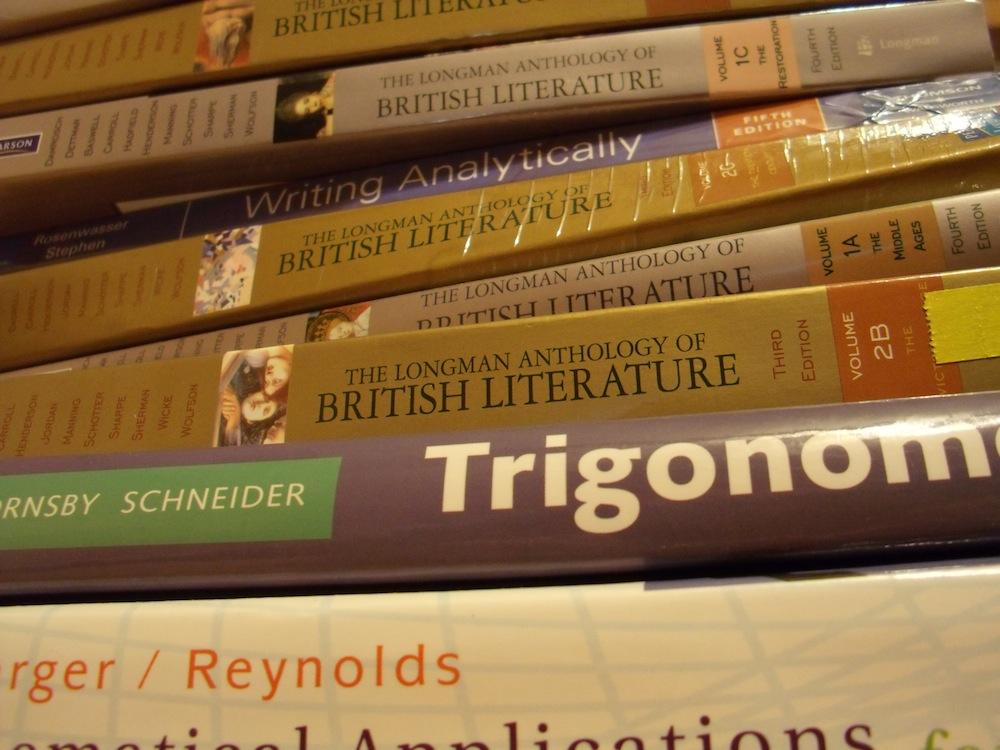Sarah Stromberg What I learned from the dual credit program: a senior column series
1) Pace yourself. Dr. Flanagan had (when I was in his class) the lovely habit of giving his students a very large packet of questions and maps on the subject matter. Each chapter we covered had about thirty questions to answer from the book, and a map with fifteen items to locate and label. Don’t get me wrong, I love American history. But there was something about that packet that simply screamed, “Don’t do me yet!”. And I didn’t. The night before each of his tests, I stayed up until one or two filling out each question, and labeling each map. The moral of the story here? It doesn’t matter if you don’t want to do it: if it’s due eventually, work on it just a little bit. Because getting three hours of sleep the night before a test is not worth it.
2) Speaking of sleep: all-nighters SUCK. Been there, done that. Whether it’s studying for a massive test, reading a hundred or so pages, or writing a paper you tragically misjudged your time on, that next day is going to kill you. Sure, you get the work done, but is it good work? No. Okay, maybe it is, you may have a talent. I do. But my point here is that drinking a large amount of caffeine, listening to your loudest music via earbuds, and frequently grabbing ice cubes to stay awake will not make you feel too hot when you go to school. It’s basic science- sleep deprivation robs your brain of the neurotransmitters that control focus, concentration, and thought processes. So do your work before it’s due, and get some sleep.
3) When a professor tells you what book you need, get it. Get exactly what they tell you to get, or you will feel very sad all year. If they say ‘fourth edition’, don’t get the third. If you do, every time they tell you to read certain pages, or even turn to a specific page, you won’t be going to the right place. And you will be sad. Also, ask for specifics about the book before you buy, or you’ll end up like me. I went and ordered my Government class’ book at the beginning of the semester and found out a few hours before it arrived that I needed the edition that also covered Texas government in the back. And don’t even think for a second that that didn’t make me sick. It did, and every time I see that stinking thing, I get a little angry. Don’t be angry- get the books you need.
4) Be nice to books. I know, you’re probably smirking about how much of a nerd I am. Go ahead, it’s true, but listen to me. Do you like to write notes and highlight in your books? How about dog-earing the pages? Here’s the thing, that stuff may help you out, and you think it could do the same for the future owner, but that’s not how the people who want to buy it from you will see it. They’ll see a beaten up book that they won’t be able to resell when they’re done with it, and they won’t be willing to pay you anything near what you paid for the book. Keep in mind; some of these books are seventy and eighty dollars. They won’t even want to spend thirty on a scribbled-on, highlighted, torn up pile of pressed pulp like that. Respect the book, or you’ll never see your money again.
5) MLA: all the way, every day. One inch margins? Double spaced, justified text? Times New Roman, size twelve? Correct citations? Yes, yes, yes, YES. Chances are, if Mrs. Jennifer Smith is your teacher, you can do correct MLA formatting in your sleep. I can. I’ve even gotten to the point that 1.25’’ margins bother me. If the text isn’t justified, it’s hideous. Cambria (the font Word instantly sets itself to) is unprofessional-looking. As obsessive-compulsive-control-freak as that all sounds, papers look better this way. Just coming off of the printer, I can see an essay I may want to read from a mile away- and so can teachers. The bottom line here is that if your paper is pretty, it will get attention.








